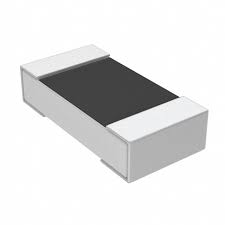Modern manufacturing is driven by precision, efficiency, and scalability. Yet, for many businesses, maintaining these factors internally can be expensive and time-consuming. Companies across industries now prefer outsourcing production to specialized partners who have the technology, expertise, and infrastructure to meet growing market demands without compromising quality or timelines.
For the chemical industry, Chemical Contract Manufacturing has emerged as the ideal solution for businesses that want to optimize production without investing heavily in equipment, compliance, and manpower. By outsourcing, companies can focus on their core strengths — such as research, marketing, or product innovation — while leveraging the technical excellence of specialized manufacturers.
The Strategic Value of Outsourcing
Outsourcing production is not merely a cost-cutting measure; it’s a long-term business strategy. It allows organizations to scale quickly, adapt to market changes, and enhance overall productivity without carrying the burden of full-time infrastructure.
Streamlining Operations
When companies partner with external manufacturers, they eliminate the need for complex operational management. From raw material sourcing to final packaging, external partners handle every step efficiently. This helps organizations maintain focus on growth strategies instead of logistical challenges.
Access to Specialized Expertise
Outsourcing provides instant access to technical specialists who understand regulatory standards, process optimization, and advanced quality control. For example, contract manufacturers are often equipped with GMP-certified facilities and expert chemists, ensuring consistency across every batch produced.
Cost Efficiency and Resource Optimization
Establishing a fully equipped manufacturing unit demands significant capital. Outsourcing converts these fixed costs into variable costs, freeing up financial resources for innovation or marketing. It also reduces expenses related to maintenance, labor, and compliance.
Why the Chemical Industry Relies Heavily on Outsourcing
The chemical sector faces unique challenges, such as stringent safety standards, specialized machinery, and complex formulation requirements. Outsourcing mitigates these challenges by transferring responsibility to experienced contract manufacturers.
Regulatory Compliance
Chemical production involves strict environmental and safety regulations. Contract manufacturers stay up-to-date with industry standards and certifications, ensuring that all products comply with local and international laws.
Risk Reduction
Outsourcing minimizes financial and operational risks. Businesses no longer face liabilities associated with equipment malfunction, workforce accidents, or production downtime, as these are handled by the contracted partner.
Scalability
Demand fluctuations are common in the chemical sector. Outsourcing allows companies to scale production up or down easily without the need for facility expansion or layoffs. This flexibility enhances profitability during both high and low market periods.
Key Advantages of Chemical Contract Manufacturing
Companies choose outsourcing not only for cost reasons but also to enhance product quality and speed to market. The following benefits make contract manufacturing an essential part of modern industrial strategy.
1. Faster Time to Market
Contract manufacturers already have operational setups, quality systems, and distribution networks. This reduces lead times for production and enables faster delivery, giving companies a competitive edge in launching new products.
2. Quality Assurance and Consistency
Professional manufacturers follow standardized procedures, advanced testing, and stringent quality control systems. They maintain consistency across all production batches, ensuring the final product meets exact specifications every time.
3. Advanced Equipment and Technology
Partnering with established manufacturers gives access to state-of-the-art equipment that may otherwise be unaffordable. These technologies enhance efficiency, accuracy, and safety in production processes.
4. Flexible Production Volumes
Whether a company requires small pilot runs or mass-scale production, outsourcing partners can accommodate varying volume needs. This flexibility supports market testing, seasonal demand, or new product launches.
5. Sustainable Manufacturing Practices
Modern contract manufacturers integrate sustainability into their processes through waste management, energy efficiency, and eco-friendly materials. This aligns with global environmental goals while reducing the client’s carbon footprint.
Outsourcing vs. In-House Production
Choosing between outsourcing and in-house production requires evaluating operational priorities, financial goals, and long-term growth plans.
Capital Investment and Overheads
Setting up a manufacturing plant demands heavy capital investment in infrastructure, machinery, and personnel. Outsourcing removes these upfront costs and replaces them with flexible service contracts that adjust with business needs.
Workforce and Training
Recruiting and training technical staff for in-house production takes time and resources. Contract manufacturers already employ experienced professionals, ensuring skill efficiency from day one.
Regulatory Responsibility
In-house teams must stay compliant with changing regulations, which can become complex and costly. Outsourcing transfers this responsibility to experts who specialize in regulatory management and documentation.
Innovation and Focus
When companies free themselves from production management, they can redirect focus toward research, marketing, and brand positioning. This leads to faster innovation cycles and better business agility.
Industries That Benefit Most from Contract Manufacturing
While outsourcing is common across industries, certain sectors gain significant value from it due to their technical nature or compliance requirements.
Pharmaceuticals
Pharmaceutical firms often rely on contract manufacturers for formulation, testing, and packaging. These partners ensure GMP compliance and maintain quality standards while handling complex production demands.
Cosmetics and Personal Care
Outsourcing allows cosmetic brands to experiment with formulations, fragrances, and packaging without maintaining a lab or facility. Manufacturers handle everything from ingredient blending to labeling, enabling faster product rollouts.
Food and Beverage
Outsourced production ensures quality control, hygiene, and scalability while reducing setup costs. Specialized contract manufacturers help maintain consistency across flavors, packaging, and nutritional standards.
Specialty Chemicals
Industries that require precise formulation — such as paints, coatings, and cleaning agents — depend heavily on contract manufacturers to achieve uniform quality and meet performance standards.
Challenges in Outsourcing and How to Overcome Them
Although outsourcing offers substantial advantages, businesses must manage it strategically to maximize outcomes.
Maintaining Quality Oversight
Relying on external manufacturers can sometimes create gaps in quality control. Regular audits, testing protocols, and communication ensure that standards remain consistent throughout production.
Protecting Intellectual Property
Sharing formulations and processes with third parties can pose risks. Implementing strict confidentiality agreements and IP protection measures prevents misuse of proprietary information.
Managing Logistics and Supply Chains
Outsourcing can complicate logistics, especially when partners are located abroad. Transparent tracking systems and digital supply chain management tools help maintain coordination and minimize delays.
Building Long-Term Partnerships
Choosing the right manufacturing partner requires due diligence. Businesses should evaluate potential partners’ reputation, infrastructure, and technical capabilities before entering long-term contracts.
Best Practices for Successful Contract Manufacturing Partnerships
Effective outsourcing requires collaboration, communication, and shared goals between both parties.
- Clear Contractual Terms: Define production quantities, timelines, quality expectations, and pricing clearly in legal agreements. This avoids misunderstandings and ensures accountability.
- Regular Performance Audits: Scheduled audits ensure compliance with agreed-upon standards and identify areas for improvement. Regular communication fosters transparency and trust.
- Joint Product Development: Collaborating on research and development encourages innovation. Manufacturers bring practical process knowledge, while businesses contribute market insights.
- Supply Chain Integration: Sharing real-time data between partners enhances forecasting accuracy and inventory management, ensuring smoother operations.
- Continuous Improvement: Encourage partners to adopt new technologies and sustainability practices. Long-term success depends on shared commitment to progress.
Each of these practices ensures that outsourcing remains a strategic advantage rather than a dependency.
The Financial Perspective of Outsourcing
The financial benefits of contract manufacturing extend beyond cost savings. It also enhances liquidity and long-term stability.
Reduced Capital Burden
By converting fixed costs into variable expenses, companies gain greater financial flexibility. This allows more investment in marketing, R&D, or business expansion.
Predictable Budgeting
Outsourcing contracts provide predictable cost structures, making it easier to forecast expenses and manage profit margins.
Improved Cash Flow
Without the burden of facility maintenance or machinery upgrades, businesses maintain healthier cash reserves and stronger financial agility.
The Future of Chemical Outsourcing
With global supply chains evolving, contract manufacturing will continue to expand across chemical and related industries.
Digital Integration
Data-driven automation and AI-powered process monitoring are transforming how manufacturers ensure quality and efficiency. Clients benefit from real-time insights into production status and performance.
Sustainability Focus
Green chemistry and environmentally conscious production methods are now becoming standard expectations. Future partnerships will prioritize low-waste, energy-efficient, and sustainable manufacturing practices.
Customization and Innovation
Contract manufacturers increasingly provide formulation support, allowing businesses to customize blends, textures, and packaging that align with unique market needs. This collaboration leads to faster innovation cycles.
Conclusion
Outsourcing allows companies to focus on growth, innovation, and brand value without the burden of maintaining full-scale manufacturing. Through partnerships built on trust, efficiency, and advanced technology, Chemical Blending processes are managed with precision and compliance. As industries evolve, outsourcing continues to offer a balance of flexibility, cost control, and innovation — ensuring that businesses can meet changing market demands while maintaining quality, consistency, and environmental responsibility.





